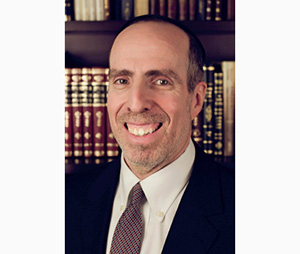
The Rambam, Rav Yosef Karo and Rav Ovadia Yosef. This summarizes what many outside the Sephardic community think constitutes the corpus of Sephardic Halacha. Of course, the Rambam was far from the lone Sephardic great Rishon, and Rav Yosef Karo is joined by a phalanx of great Sephardic Acharonim such as the Pri Chadash and the Chida. Rav Ovadia Yosef as well was as far from the lone great Sephardic poskim of the second half of the 20th century. In this essay we introduce another 20th-century Sephardic superstar, Rav Mordechai Eliyahu.
A Very Different Style From Rav Ovadia Yosef: Three Distinctions
Rav Eliyahu, who served as Israel’s Sephardic chief rabbi from 1983 to 1993, adopted a very different style from Rav Ovadia Yosef. We can point to three significant differences. Chacham Ovadia did not concentrate on Kabbalah, and his rulings famously differed quite often from the great 19-century authority the Ben Ish Chai, Rav Yosef Chaim of Baghdad who incorporated a great deal of Kabbalastic thought and practice in his rulings. He even composed a multi-volume work titled Halichot Olam in which Chacham Ovadia defends his deviations from the Ben Ish Chai’s rulings.
By contrast, Rav Eliyahu retained a tenacious loyalty to the rulings and approach of the Ben Ish Chai. For example, Rav Eliyahu’s edition of the Siddur “Kol Eliyahu” and Sefer “Darchei Taharah” are replete with references to the Ben Ish Chai. This is hardly surprising considering that Rav Eliyahu’s father and grandfather were close to the Ben Ish Chai and Rav Eliyahu’s wife Mazal was a great-niece of the Ben Ish Chai. One can fairly assert that Rav Eliyahu presented a contemporary version of the Ben Ish Chai’s rulings, which are noted by its infusion of Kabbalistic influence and an orientation to accommodate a broad base of opinions.
Rav Eliezer Melamed describes Rav Mordechai Eliyahu’s approach to Halacha:
Rav Yosef Chaim of Baghdad was unique in that he merged and incorporated all the significant opinions in his halachic rulings. The base of his rulings were the Beit Yosef and Shulchan Aruch. However, in addition, he considered the other great poskim, both Ashkenazic and Sephardic. Rav Eliyahu remarked that at times the Ben Ish Chai followed the [Ashkenazic] Magen Avraham and the Shulchan Aruch HaRav, who followed in the latter’s path.
Rav Eliyahu continued in this path. He would remark that it is not our role to discover lenient approaches and follow them. Rather we should find the path to satisfy the consensus opinion and only in case of pressing need (sha’at had’chak) rely on the lenient opinions.
This stands in stark contrast to Rav Ovadia Yosef, whose halachic rulings are renowned for their lenient orientation. This difference in orientation is specifically pronounced in regards to taharat hamishpacha (family purity laws). Rav Ovadia’s three-volume work on this sensitive area of Halacha titled “Taharat HaBayit” adopts a far more lenient approach their Rav Eliyahu’s Darchei Taharah.
A third difference is in regard to the State of Israel specifically and modernity in general. While Rav Ovadia certainly adopted a positive approach to Medinat Yisrael, Rav Eliyahu was more of an ardent Zionist, thereby capturing the loyalty of the Haredi Leumi community. He fought in Israel’s War of Independence, enthusiastically embraced Jewish settlement of Yehuda and Shomron (the “West Bank”) and often visited soldiers in the Israel Defense Forces to offer encouragement.
In regard to modernity, one example highlights a difference between Rav Eliyahu and other great rabbanim. Rav Eliyahu (Techumin 3:244) believes that under current circumstances, observant judges can make a positive contribution to the Israeli civil court system. This is quite a contrast with the stance of Rav Shalom Messas who (Teshuvot Shemesh Umagein 3 Even HaEzer 44) invalidates a wedding because one of the witnesses served as a judge in the Israeli civil court system. Although the witness was a practicing Orthodox Jew, Rav Messas claims that anyone who serves as a judge in civil court is considered a thief because he forces people to pay money even when the halacha does not necessarily require the payment.
Rav Yisrael Rozen, in his dedication of Techumin volume 31 in memory of Rav Eliyahu, writes:
At Machon Tzomet we have stored numerous rulings of Rav Eliyahu regarding security in settlements and the Israel Defense Forces on Shabbat as well as other government and communal service providers such as hospitals, fire departments and allied sectors. All of these rulings were thoughtful and effective.
Conclusion
Rav Mordechai Eliyahu, unfortunately, does not get much “air time” even among Sephardic Jews in the United States. However, his influence in certain circles in Israel, especially among what is called the Haredi Leumi (scrupulously observant Zionists) community, is profound. While his halachic style may not suit every individual or even Sephardic community, his voice must be considered in rendering decisions especially for the Sephardic community.
Far from detracting from the greatness of Rav Ovadia, considering Rav Eliyahu’s opinions actually enhances Rav Yosef’s influence. A great musician, l’havdil, is enhanced when teamed with other great musicians. The symphony of Sephardic Halacha is similarly upgraded by including the entire cast of great players into the orchestra.
By Rabbi Haim Jachter
Rabbi Haim Jachter is the spiritual leader of Congregation Shaarei Orah, the Sephardic Congregation of Teaneck. He also serves as a rebbe at Torah Academy of Bergen County and a dayan on the Beth Din of Elizabeth.













